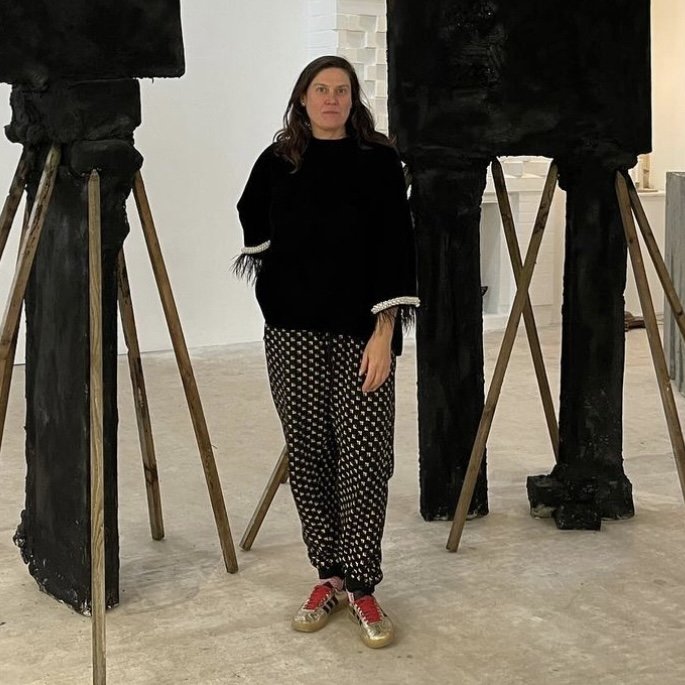
frame 48 February 2024
The Homeless Mind
Clare Conville in conversation with HelenA Pritchard
South Africa born HelenA Pritchard is a contemporary artist whose works are informed by modernist painting traditions and relationships with craft. She integrates discarded, found and off-cut materials into her works, inverting the principles of high and low culture and forging abstract perspectives on societies’ imperfections.


Clare Conville – What inspired you to call the exhibition ‘The Homeless Mind’?
HelenA Pritchard – I took the title from a book by Peter and Brigitte Berger called Anxieties in Society.
CC – What themes from the book did you find so compelling?
HP – It was less to do with the philosophy of the overall book, but more the way they propose oppositions, particularly between city and nature
CC – Displacement is also a theme in the book, and in your own work. Where does that feeling come from?
HP – I’m South African, but I live in the West. I feel a constant sense of duality – it’s almost as if the physicality of my work resides in two places: both my natural and my adopted homes.
CC – The title ‘The Homeless Mind’ suggests both a secure framework and a sense of freedom.
HP – Yes. I feel that I can take my mind wherever I want, and I feel as a foreigner everywhere. That liberates me in creating my work.
CC – You use a lot of discarded materials in your work.
HP – Yes, I use a lot of construction waste, particularly concrete, and the recycling of that is an important ecological aspect to my practise. It also allows me to document the present but refer to the past.
CC – Tell us a little more about the way the exhibition is laid out.
HP – Well, I’ve gone into opposition here, too. The sculpture is quite fluid, quite malleable, and quite painterly. The wall pieces offer much more structure and containment; so another duality, I suppose.
CC – So again we’re talking about contrast?
HP – I wouldn’t necessarily call it contrast, but I love reinventing things. I love repurposing things, and I love creating a metaphysical balance between life forces.
CC – And there’s also a playfulness and humour here?
HP – Yes. I love referencing art, history, and, in real time, life experiences. Humour is also a way of survival.






